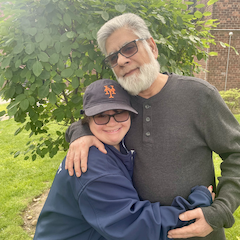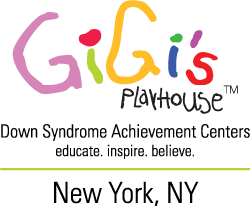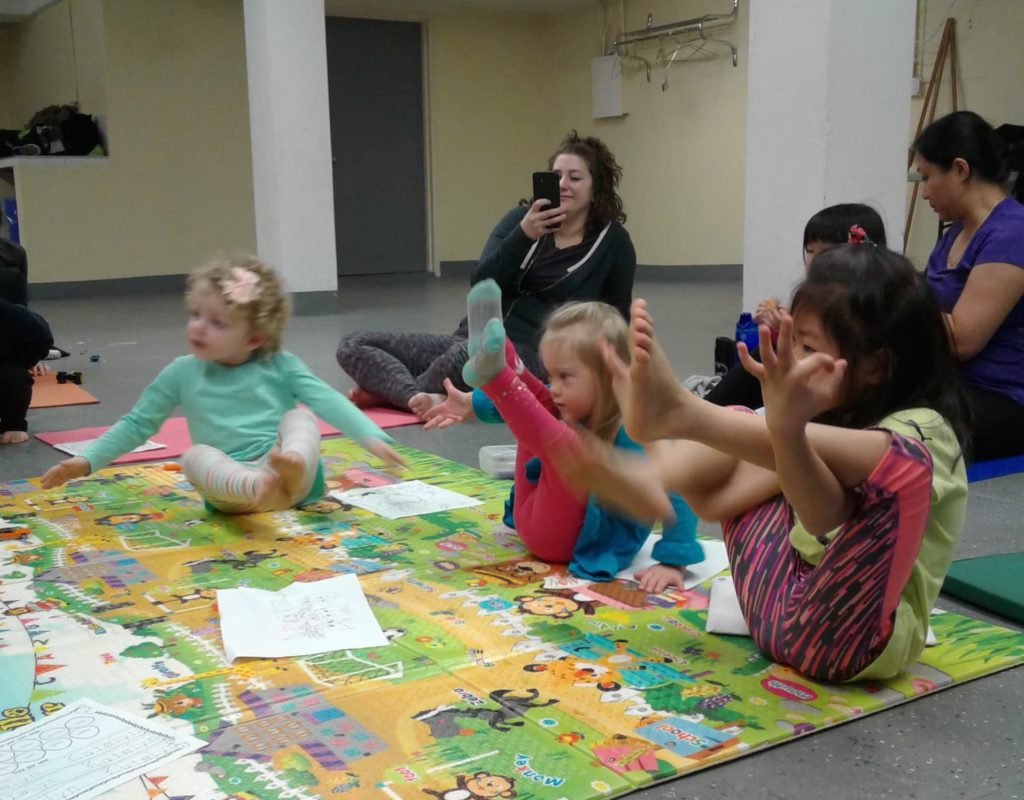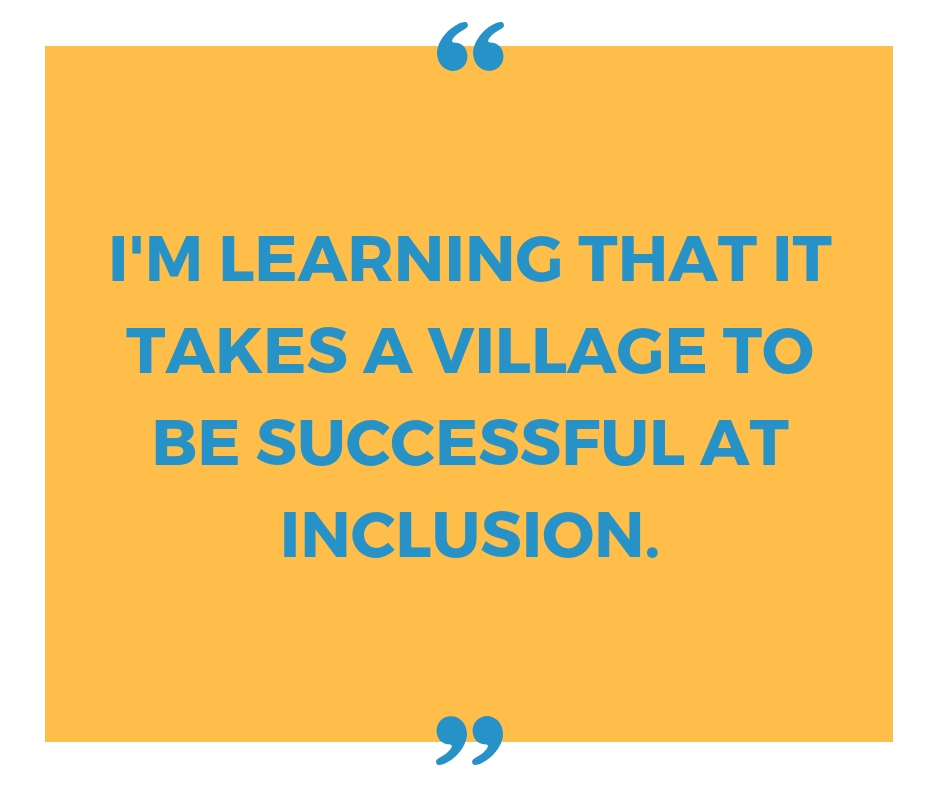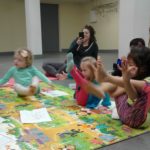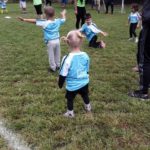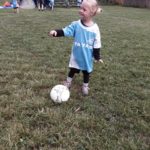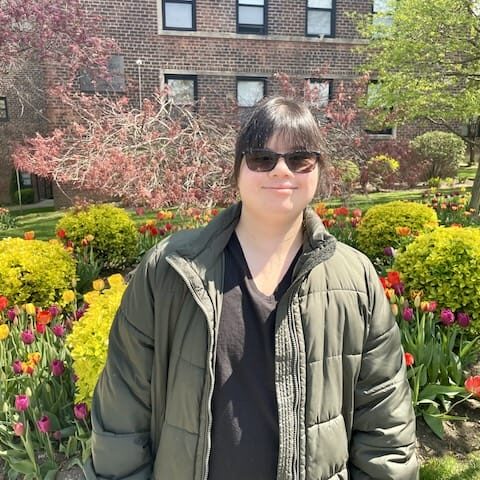Inclusion- A parent perspective.
It’s the last day of Down Syndrome Awareness/Acceptance Month and it has been a month full of advocacy and celebration! At GiGi’s Playhouse NYC, we had our 1st Annual Fashion Show presented by Bloomingdale’s and our most successful Dancing for Down Syndrome fundraiser ever which raised $40,000 to support our community! Through both of these events, we showed the value and beauty of our friends with Down syndrome and spread positivity through our social media.
To cap off a great month, we want to feature a guest blog from a parent, who everyday has been sharing bits of her experience raising her daughter Frankie. Thank you for reading.
Inclusion- A Parent Perspective
by Farah Lyner
My daughter Francesca is 3 and a half years old. It’s an age where many typically developing children start to demand more independence and seem to need their carers a little less. We think of our children with Down syndrome as developmentally behind and therefore not wanting the same things as other children. But perhaps it’s not so surprising that I can feel the subtle push-backs from Frankie, too, as she reaches the same stage as her peers.
Up until now the activities we have attended were “Mommy and Me” meaning I accompanied her. The benefit was that I was there to guide her through participation and redirect her when she lost interest, which is what you would expect from toddler activities. There is some comfort in just being there in the room, knowing that ultimately I am responsible for her and for keeping her on track. I can also help her tread that fine line between being included but not disturbing the class with any additional needs.
But now here we are at 3.5, more pre-schooler than toddler. Classes are getting longer, parents are being asked to leave, activities are “drop off” and my anxiety is through the roof! I still feel the responsibility, I still want to make sure that line is tread, but I have so little control. I drop her off at school with a kiss and prayer, I sit in the waiting room of the ballet studio watching her on the monitors and mentally willing her to participate, follow directions and otherwise behave. Sometimes she does and sometimes she doesn’t.
Which brings me to my point – inclusion is not just about signing your child up for an activity for typically developing children and hoping for the best. Most of the time, Frankie is great in school, extracirriculars and various classes. She enjoys being there and loves participating. But sometimes I notice her quietly sitting out or straying or otherwise doing her own thing. One reason for this is she’s a very visual learner – she needs to see things done, often several times, before she understands HOW to participate and what she’s expected to do. Because she can’t express herself particularly well right now, I can only guess at other reasons, but I suspect that it’s sometimes because when she’s there no one is actually and purposefully including her. I totally get it, no one teacher or class leader can devote all of their attention to keeping her engaged. And to be honest that type of support is almost more exclusive than inclusive.
But therein lies the transition – for me, for her, for her peers and classmates, for their parents and for her teachers. I’m learning that it takes a village to be successful at inclusion. There are many stages and many layers.
First, I need to prepare her. I need to talk with her in advance so that she knows what to expect from an inclusive experience. Even when I don’t think she understands and is taking in what I’m saying, I need to do my best to explain what will happen and what she is supposed to do. It makes no sense to throw her into a situation without her having any indication of what the experience will entail.
Next, I need to ensure that her teachers are aware of our situation and how she learns best. I have absorbed a lot about how Frankie learns and functions within a group over the last few years of Mommy and Me classes. Whenever I can impart information about what I’ve noticed, it saves time and frustration for all parties involved.
Finally, I hate to ask other parents to make special considerations for Frankie – I mean we’re TRYING to fit in here! But one way they can help us on our journey to full and meaningful inclusion is to talk to their children and lead by example in how to engage and draw in friends like Frankie who might be hovering on the fringe. We will of course keep putting her in inclusive settings, but we so appreciate when other parents and children embrace inclusion from their end too.
Of course these suggestions are not foolproof and there is no real formula to inclusion, but they are the groundwork. It is our job to be the foundation for meaningful inclusion, but I believe the actual keys to success are opportunities, repetition and lots of chances to get it right. In my experience, it can feel like such a blow when it doesn’t work out right away but I have come to realize that each attempt is a valuable learning experience for us all. Inclusion is a life-long work in progress.
Recent Posts
